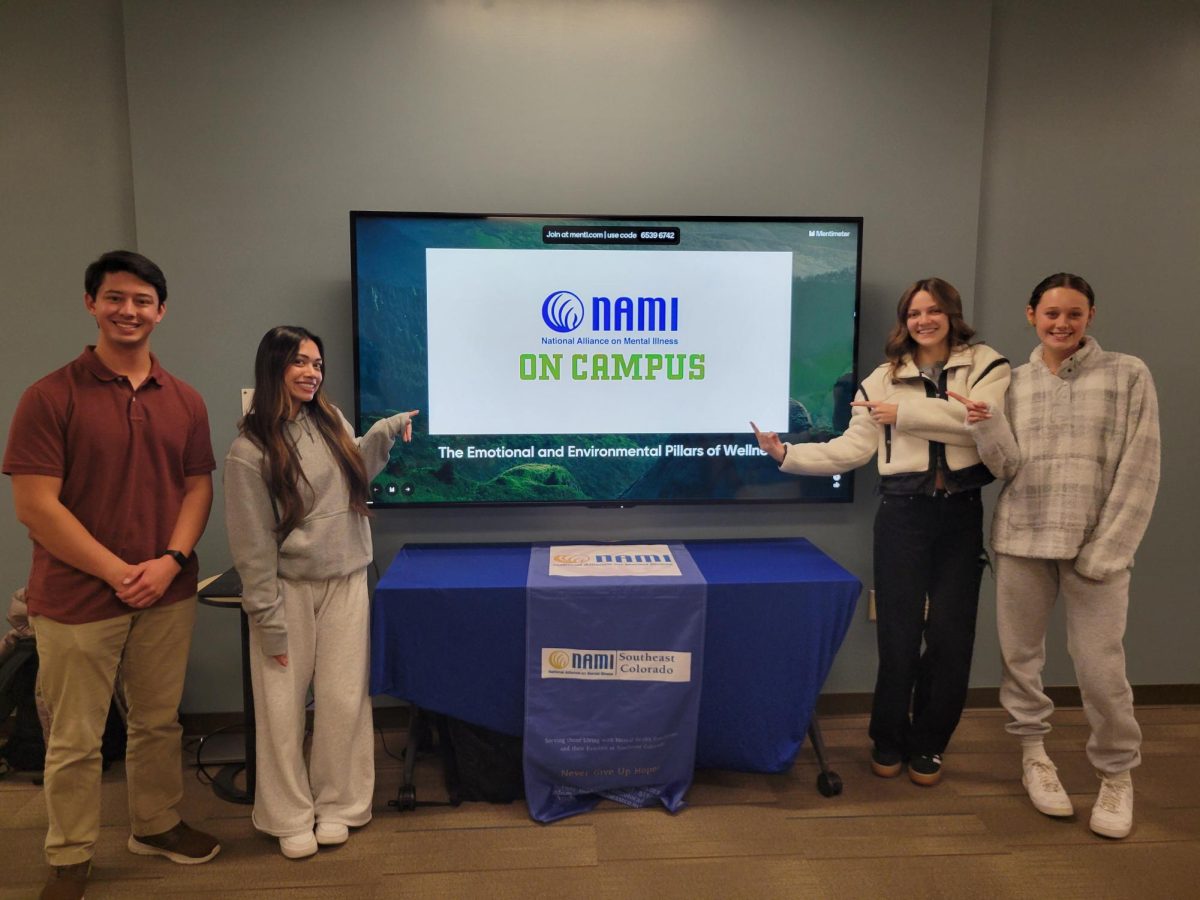
Current and former resident assistants at Colorado State University-Pueblo addressed new policies that were instated this school year for the residence halls.
According to the 2014-2015 Residence Life and Housing Handbook for Policies and Procedures, an RA is one of the most important resources university residents have.
RAs are CSU-Pueblo students who are hired by the university and are assigned to live on a floor community within the residence halls.
A section titled “Resident Assistants” in the handbook describes important qualities of RAs.
“RAs are knowledgeable about campus resources and the service offered to students. Resident assistants will work with the students on their floor to build a cohesive community through regular programs, activities, events, and floor meetings,” is says.
“The RA will provide you with a variety of things to do that will help you grow personally and academically.”
Jim Wiley, a junior at CSU-Pueblo, is an RA in Culebra Hall. This year is Wiley’s first year working for Residence Life and Housing.
“It’s hard to say whether or not, when a policy is implemented on campus, if it’s going to have a positive or negative effect,” Wiley said.
“There’s pretty much only the reactions that you get from a large number of people that you can use to judge whether or not it is a good or bad thing but sometimes even those reactions are not a good basis for that judgment,” he said.
There has also been speculation that the new policy under the visitors and cohabitation section had already been introduced in previous years, but is only being put into action this year.
Zak Slavik, a former CSU-Pueblo student who graduated in May 2014 with a degree in business management and an emphasis in marketing, said that this is not true.
Slavik worked for Residence Life and Housing for three years. Two years were spent as a regular RA and one year was as a senior RA. Slavik was also a desk assistant, which was required with the RA position.
A senior RA is not included in this school year’s handbook but is listed in the 2013-2014 resident handbook as “a student with previous experience being an RA.”
“The senior RA has similar responsibilities as the RA, but takes a leadership role throughout the residence hall to provide additional support and assistance to residents and other RAs.”
Slavik’s experience as an RA last year was much different than this year’s new policies would allow for.
“Yes, you did have to sign guests in, yes this did technically mean a guest from another building but if and only if they were spending the night, but it was barely enforced, if at all,” Slavik said.
“As an RA, if there was a problem with an unwanted visitor or a roommate conflict, we were trained on the proper procedure to deal with those situations,” he said.
The 2013-2014 handbook’s guest policy states, “Visitation is when a guest visits a resident in their room. All guests must register at the front desk and be accompanied by a host/hostess who lives in that residence hall.”
“You may only register a guest in the hall in which you live. Register your guest at the front desk by presenting a valid CSU-Pueblo identification card and your guest’s picture ID.”
This does not state whether a student who does not reside in the same hall as the resident is considered a guest or not, as opposed to The Resident Life and Housing Handbook for 2014-2015.
Under the cohabitation section of the 2013-2014 handbook, the policy states, “All overnight guests must be checked in at the front desk regardless of the length of their stay. Guests are allowed to stay for a maximum of three nights in a seven day period.”
“An excessive number of visits, even if they last no more than three nights in a seven day period, may also be considered a violation of this policy. All overnight visitations must be consistent with any established roommate plan,” it says.
This policy remains the same this school year. However, it was added in The Resident Life and Housing Handbook for 2014-2015 that only “guests of the same sex are allowed to stay overnight in resident’s room.”
“I understand the reasoning behind the guest policy and totally agree with having to sign in any guests that may not be from the university, but to have to sign in every time you enter another building is a little far-fetched in my opinion because this hinders our feeling of community and being able to mingle in the dorms,” Slavik said.
“The main part of the school’s motto, or core culture, is diversity and not being able to mingle as easy strays away from that,” Slavik added.
According to Slavik, students should be able to spend the night with each other or have easy access to one another, regardless of their genders.
“Isn’t that the point of college experimentation? Breaking out of your shell? Finding your calling? Being a part of a community? I think we’re losing what students are looking for by implementing the new policy,” Slavik said.
“This will take away from the sense of community students are looking for in the residence halls and the retention rate will drop drastically in the next year, especially if tuition keeps going up,” he said.
Despite Slavik’s disagreement with the new policy on the “Visitors and Cohabitation” section, he does agree with the other new policies, which consist of free laundry and the Microfridge, which is a combination of a refrigerator, freezer, and microwave. They are placed in each room in the residence halls.
Preston DeHerrera, a sophomore business major said the Microfridges were placed during the summer and they are energy efficient.
“These Microfridges, as well as free use of washers and dryers have been provided by Residence Life and Housing this year,” DeHerrera said.
Regardless of the opposing viewpoints, Wiley says the Resident Hall Association, which is in charge of advocating the wants and needs of students living in the residence halls, is currently in the process of reviewing the policies.
“I do think that process of student input and review is essential for it to be accepted by the student body,” Wiley said.
The RHA is trying to come up with new policies that reflect the opinions of the students, as well as including greater standards of safety.
“I’m really glad that the administration has been willing to facilitate the process through our RHA of reviewing the policy and trying to come up with something that can be owned by the student body. Once that does take place, there will be more cohesion between the staff, the residents, the administration and as well as the students,” Wiley said.
This article is part one of a three-part series.







